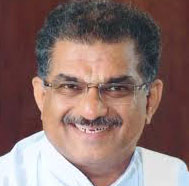
Mangalore, April 4: The Rural development programme promoted by Shri Kshetra Dharmasthala Rural Development project (SKDRDP) will be extended to five more districts of the state, according to its president D Veerendra Heggade.
In a press release, Mr Heggade informed that the project will be extended to Koppala, Chitradurga, Davangere, Mysore and Chamrajnagar districts from next year.
“With the focus on infrastructure development of the areas, the project will be active in 16 districts of the state”, he stated.
He said that the model self-help group forming scheme of the Union government would also be implemented in Chitradurga District.
The SKDRDP had formed 1,69,321 self-help groups covering 18.81 lakh families in 11 districts last year while 83,720 SHGs have opened their bank accounts on the business correspondence model.
The project has also targeted on selling 2.85 life insurance policies next year in addition to 1,80,294 policies sold last year, he pointed out.
Mr Heggade added that clean drinking water supplying facility has been implemented in 50 villages including villages in Gadag, Dharwad, Pavagada and Kadur. He asserted that the project of providing clean drinking water should be successfully implemented with the help of local bodies.
The Shri- Paddathi type of paddy cultivation has attracted 29,108 farmers and has resulted in growing 1,71,461 tonnes of paddy. 'Shri Paddathi' will be extended to 50,000 acres of land next year, he declared.
Meanwhile, Mr Heggade announced that the Dharmasthala temple administration has distributed Rs 11.37 crore to those in need.





Comments
Dear Sir ,
I am Uneducated But I am Still Working in Manager & Accounts section In Sri Basaveshwara Enterprises If Any Suitable job
Add new comment